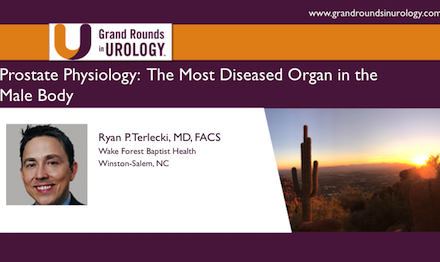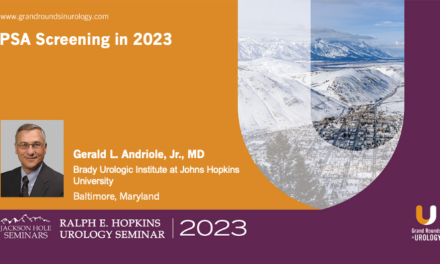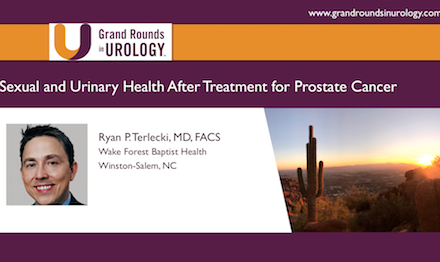Session 2:
Next Generation Developments in GU Cancer#
2018 Consensus Statements#
-
Trials ongoing for adjuvant therapy in high-risk renal cancer, with current tyrosine-kinase inhibitors (TKIs), are investigating only progression-free survival (PFS) as primary endpoint. We think overall survival (OS) is a more important indicator of outcome. The group questioned the clinical significance of an improvement in PFS with significant toxicity, without a benefit in survival. Quality of life changes become more relevant especially in a patient who starts treatment without symptoms. This is particularly important in light of the known toxicities of tyrosine kinase inhibitors in this setting.
-
The CARMENA trial found, in intermediate to high risk patients with metastatic disease, that patients treated with nephrectomy followed by sunitinib had an inferior survival than patients undergoing treatment with sunitinib alone. The group agreed that more studies are needed to evaluate nephrectomy several patient groups 1) low-risk metastatic renal patients undergoing either TKI or immune therapy and 2) Intermidiate/high risk patient metastatic patients undergoing immune therapy.
-
Neoadjuvant trials are currently being performed with immunotherapy alone or the combination of immunotherapy with targeted therapies. The optimal combination and timing in relationship to surgery are yet to be defined. Is the neoadjuvant approach better than that adjuvant approach? Does neoadjuvant therapy proved a constant source of antigen exposure for immune therapy, and thus have an advantage over adjuvant therapy?
-
The role of biomarkers, particularly PDL-1 status needs to be better defined. Is PDL 1 expression predictive of response or prognostic for survival, or both? Can this marker be used to design neoadjuvant/adjuvant trials.
5-Year Predictions:#
- Combination antiangiogensis therapy/checkpoint inhibition therapy will be a standard of care for metastatic disease.
- Neoadjuvant/adjuvant immune therapy trials will be completed.
Session Moderator#
Daniel P. Petrylak, MD
Yale Cancer Center
New Haven, CT
ABOUT THE AUTHOR
Daniel P. Petrylak, MD, is a Professor of Medicine, specializing in Medical Oncology and Urology, and Chief of Genitourinary Oncology at Yale University Cancer Center in New Haven, Connecticut. Dr. Petrylak is an internationally renowned medical oncologist and is considered a pioneer in the research and development of new drugs and treatments to fight cancers of the prostate, bladder, and kidney.






